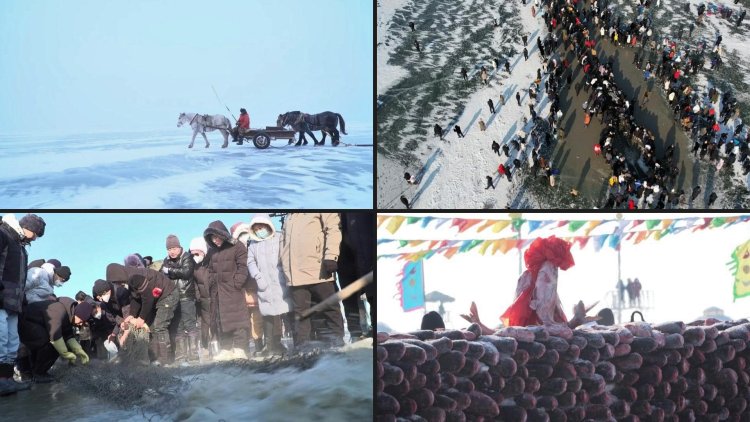Ice fishing tradition remains alive for centuries in Northeast China

The 21st Chagan Lake Fishing and Hunting Cultural Tourism Festival kicked off in Songyuan of Northeast China's Jilin province, with thousands of tourists witnessing the spectacle of fish leaping over the water.
For centuries, the locals living by Chagan Lake have kept alive the tradition of ice fishing by hand-drilling holes through the thick ice and casting nets into the icy waters to catch fish.
After years of promotion, winter fishing at Chagan Lake has become a famous tourism attraction in the city.
For centuries, the locals living by Chagan Lake have kept alive the tradition of ice fishing by hand-drilling holes through the thick ice and casting nets into the icy waters to catch fish.
Tourists select goods at a fish market near Chagan Lake in Songyuan City, northeast China's Jilin Province.
The winter fishing ritual on the lake that dates back to the Jin Dynasty had been identified as one of China's national intangible cultural heritage in 2008.
The name Chagan, Mongolian in origin, means sacred, white or pure. So the lake is also referred to as Holy Water Lake. It is a freshwater body that covers more than 500 square kilometers — one of the 10 biggest freshwater lakes in China.
During the following two months of the fishing season, it is expected to harvest more than 2 million kilograms of fish and the fishing spectacle will attract 1 million tourists, achieving a tourism revenue of 790 million yuan.















